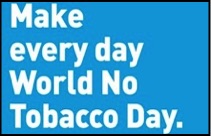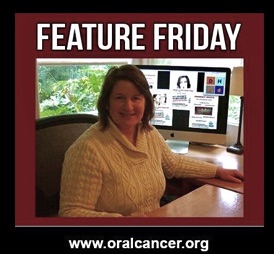
Tobacco cessation is the single most effective step to lengthen and improve patients’ lives. Quitting smoking has immediate and long-term benefits and is well worth the difficulty, both for the dental patient and the dental professional. The dental team should seek to reinforce and compliment those patients who have recently stopped smoking.
Dental hygienists have many resources available for talking to patients about oral cancer, tobacco cessation and periodontal disease. Dental hygiene professionals are encouraged to spread awareness and share resources with their patients for disease prevention and detection. The Oral Cancer Foundation (OCF) website features information on holding free oral cancer screenings, as well as resources for oral health professionals on topics such as tobacco cessation programs and the destructive and contagious human papilloma virus (HPV). ADHA has partnered with the Centers for Disease Control and Prevention to share and promote the first federal national tobacco education campaign for over 19 yeras now—Tips From Former Smokers.
MJs work in tobacco cessation has been an asset to her community. She was a past Advisory Committee Member for the ADHA Tobacco Intervention Initiative and is currently the liasion for Washington State Tobacco Cessation. See also below for some online resources available she has put together.
* Note 1-800-QUIT-NOW is a toll-free number operated by the National Cancer Institute (NCI) that will connect directly to the state's tobacco quitline. The number serves as a national portal to link callers to the state's quitline based on the area code.
PATIENT SITES
ADULT QUITTING SITES
TEEN AND KID SITES
• Campaign for Tobacco-Free Kids
• The Real Cost / E-cigarettes from Surgeon General
TOBACCO-RELATED ORAL DISEASE SITES
• Dental Problems Associated with Tobacco Use
• Smoking, Gum Disease, and Tooth Loss (CDC)
HEAD AND NECK/ORAL CANCER SITES
• NIH Oral Cancer Screening - Patient Version
• Head and Neck Cancer - Patient Version
• Oral Complications Chemo and Head/Neck Radiation
QUICK QUESTIONS/ANSWERS:
• Can interventions delivered by mobile phones help people to stop smoking?
• Can we increase adherence to medications that help smokers to quit?
• Does motivational interviewing help people who smoke to quit?
• Does giving people feedback about the effects of smoking on their body help them to quit?
• Can exercise help people quit smoking?
• Can programs delivered by mobile phones help people to stop smoking?
DENTAL PROFESSIONAL SITES
CESSATION SITES
• Healthcare Providers: Tools and Resources Tobacco Use (CDC)
ORAL DISEASE SITES
• Oral Cavity and Oropharyngeal Cancer Screening–Health Professional Version
• Oral Complications of Chemotherapy and Head and Neck Radiation - Health Professional Version
GENERAL TOBACCO USE SITES
• Healthy People 2030: Tobacco Use
MEDIA RESOURCE
• Tobacco Cessation Training Videos for Effective Motivational Interviewing: The University of Florida, Department of Psychiatry, has two videos showing both effective AND ineffective motivational interviewing method.
The information provided on this site is designed to support, not replace, the relationship that exists between a patient or site visitor and his or her existing physician/dentist. The production group of this site will not give out any medical or dental advice online concerning tobacco cessation or related information. This webpage and associated webpages are personal pages without intent to advertise and retrieve any personal information or statistics from those viewing it or sending email to the production group. There is no sponsorship or funding of the site outside that of the production group. Nor does the webpage host any form of advertisement.
Updated 3/1/2025 Production by Fehrenbach and Associates
The Great American Smokeout takes place every year in November by support of the 100-year old American Cancer Society to encourage smokers quit for at least one day, in hopes they will quit forever. Since 1977 communities have offered cessation classes, 'cold turkey' lunches, and more to support quitters.
The World No Tobacco Day is held each year in May and is organized by the World Health Organization (WHO).
LATEST
The Million Hearts® Tobacco Cessation Change Package provides a list of evidence-based process improvements clinicians and health systems can implement to deliver optimal treatment to patients who use tobacco. It contains road-tested resources, shared by health systems and clinicians, that you can adapt to fit your setting and patient population. The change package complements existing protocols and guidance, creating a suite of practical materials you and your team can put into action.
Additional models for treatment implementation have evolved since development of the 5As. Ask, Advise, Refer (AAR) and Ask, Advise, Connect (AAC) emphasize connection of patients to treatment extenders. Additional models for treatment implementation have evolved since development of the 5As. Ask, Advise, Refer (AAR) and Ask, Advise, Connect (AAC) emphasize connection of patients to treatment extenders.
Tobacco Cessation Resources 2025



